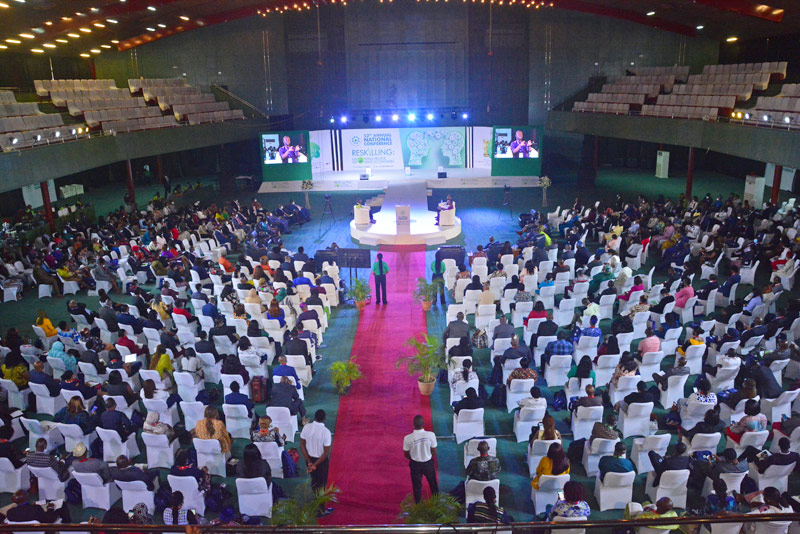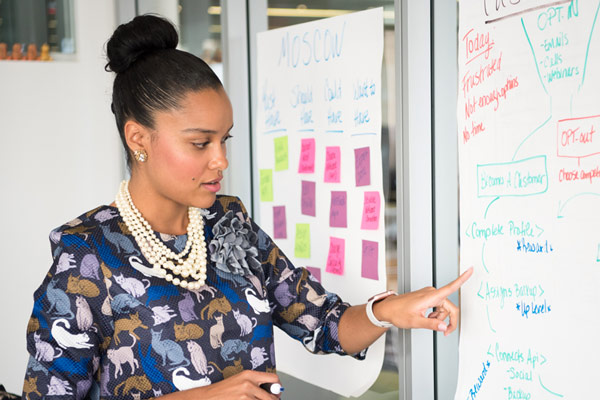Diversity, Equity, Inclusion, and Belonging (DEIB) in the context of workplace culture sustainability
Workplace culture and sustainability are key factors that define an organisation. Every organisation invests in sustainability to ensure that its resources, especially human resources, are aligned with its vision and mission, enabling continuity in business operations.
When discussing Diversity, Equity and Inclusion(DEI), diversity refers to the variety of human resources brought into the workplace, encompassing differences in gender, ethnicity, disability, and more.
- Equity focuses on ensuring that every individual, regardless of these differences, has access to the resources and opportunities needed to contribute meaningfully to the organisation.
- Inclusion takes this further by fostering a supportive and conducive workplace environment where individuals from diverse backgrounds, regardless of gender, disability, or ethnicity can thrive, maximise their potential, and work effectively.
- Belonging is the natural result of an inclusive workplace. It is something only employees can truly affirm, as it reflects their sense of acceptance, connection, and value within the organisation. Employees who feel they belong are confident that their contributions matter and are appreciated.
In the context of disability and inclusion, fostering belonging involves removing barriers to employment for people with disabilities and providing reasonable accommodations. This empowers them to function effectively, contribute meaningfully, and uphold the organisation’s culture, values, and sustainability objectives.
Beyond the trend, DEIB, becoming a crucial topic in today’s business landscape
Extensive research has highlighted the significant losses organisations incur when they fail to be inclusive, particularly of people with disabilities. It has been observed that such exclusion leads to missed opportunities for harnessing valuable talent and contributions. This realisation has prompted a shift in approach, with greater emphasis on inclusivity. Organisations that embrace diversity and inclusion are shown to outperform their peers in innovation, foster higher employee engagement, and, ultimately, enhance workplace sustainability. By eliminating barriers and creating an environment where everyone can function productively, these organisations secure long-term success.
In Nigeria, the government recognises the importance of inclusive workplaces for persons with disabilities. The Nigerian Disability Prohibition Act of 2018 mandates organisations to ensure accessibility, prevent discrimination, and provide equal opportunities for persons with disabilities to thrive in the workplace.
The collective responsibility of society in creating a seamless and inclusive experience for people with disabilities
People with disabilities are a part of every community, not just the workplace, and government policies extend to public spaces as well. The government has taken proactive measures to ensure accessibility is prioritised not only in the private sector but also in public spaces such as markets, schools, banks, and places of worship. This commitment has prompted widespread compliance across various sectors.
The National Commission for Persons with Disabilities, an arm of the government focused on disability inclusion, has collaborated with Sight savers to develop an Accessibility Standard. This initiative, led by engineers in Nigeria and supported by the Nigerian Society of Engineers and building professionals, outlines clear guidelines for constructing accessible buildings to accommodate persons with disabilities.
In Abuja, Nigeria, there is a focused effort to ensure that housing estates are designed to be fully accessible. This initiative reflects the understanding that disabilities can affect anyone at any time, emphasising the importance of preparing society to be inclusive. These efforts aim to raise awareness and ensure that public spaces, communities, workplaces, and offices are accessible to all, fostering a truly inclusive environment for people with disabilities.
How organisations can measure the impact of DEIB initiatives on their bottom line.
Organisations can assess the impact of their DEIB initiatives on their bottom line through various methods:
- Tracking employee retention rates to evaluate the effectiveness of inclusion efforts.
- Measuring employee engagement scores, which can provide insights into the workplace environment.
- Conducting employee satisfaction surveys to assess how inclusive and effective organisational policies are.
- Carrying out customer satisfaction surveys, especially for profit-driven organisations, to gauge how inclusive their policies and practices are perceived externally.
Inclusive organisations typically experience higher retention rates, reduced recruitment and training costs, and overall benefits to their bottom line. Advocating for workplace inclusion isn’t solely about charity or human rights, it is also a strategic business decision. Organizations that prioritise and effectively implement inclusion are unlikely to experience negative impacts on their bottom line.
How organisations can overcome unconscious bias to ensure fair practices.
Organisations can address unconscious bias to promote fair practices by:
- Implementing regular unconscious bias training: Training is essential to help employees recognise and understand their biases. This fosters self-awareness and equips staff with the tools needed to make objective decisions in hiring diverse candidates, promoting inclusivity, and engaging in fair interactions with individuals with disabilities.
- Standardising and ensuring transparency in recruitment processes: Organisations should establish clear, consistent recruitment procedures and openly communicate them to ensure fairness and eliminate biases.
Role of leadership in driving DEIB initiatives.
Inclusion begins and ends with leadership. To foster inclusion in the workplace, it starts with leaders, and board membership should include individuals with disabilities. After all, those who experience challenges firsthand are best positioned to understand and address them. People with disabilities should advocate for themselves, rather than relying on others to speak on their behalf. Having them in decision-making roles provides an invaluable opportunity to hear their perspectives and gather insights on how to make the workplace more inclusive. A board composition that prioritises diversity is a great starting point.
The future of DEIB in a rapidly evolving workplace, especially with trends like remote work and AI integration.
For disability inclusion advocates like Sight Savers, the future looks promising, as significant awareness has been raised, and there is increasing support for organisations and individuals committed to advancing this cause. The workplace is rapidly evolving, with greater adaptability, the growing acceptance of remote work, and the integration of Artificial Intelligence (AI), all of which are reshaping how we work and how organisations prioritise inclusion. These advancements are breaking down barriers that go beyond physical spaces, allowing individuals with disabilities to work remotely and leverage AI to perform tasks that enhance their contributions. For instance, screen reader software enables people with visual impairments to create and present PowerPoint presentations independently, without needing assistance.
In conclusion, we must evolve alongside these trends by prioritising flexibility, fairness, and human-centered approaches. Organisations that integrate inclusion into these changes will not only future proof their culture but also lead the way in creating workplaces where everyone, regardless of disability or background, can thrive.
“This thought leadership piece is culled from the CIPM radio programme, ‘The Office.’ The opinions expressed in this article are solely those of the Guests and do not represent the views of CIPM.”




